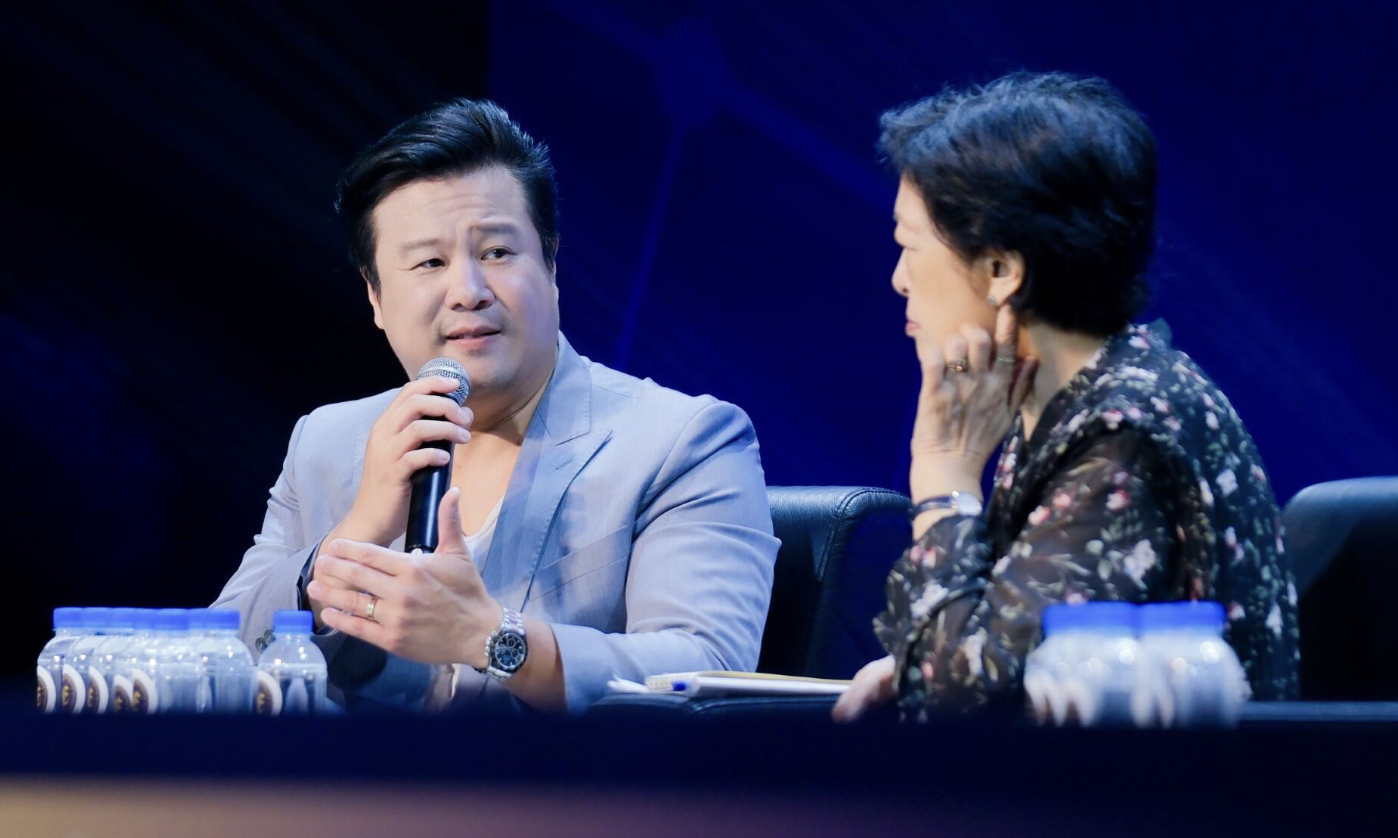At the recent “Excellence in Education, Nurturing Identity” forum held in Ho Chi Minh City, speakers pointed out concerning consequences of the country’s increasing embrace of international education models.
Vietnamese at risk of becoming a foreign language

Educator and musician Thanh Bui emphasized that if future generations are to not only know but also understand their cultural identity, then international schools must teach students about Vietnamese traditions.
For example, at Vietnam Tinh Hoa Primary School, students are required to be fluent in both English and Vietnamese. They also study traditional culture and history - learning why sticky rice cakes are made during Tet, why lanterns are carried during the Mid-Autumn Festival, and the importance of folk games, gratitude, and filial piety.
“I worry that the internationalization of today’s education, with its focus on English and integration, could lead to a generation of Vietnamese youth who say ‘hello’ fluently but don’t know how to greet someone in their native language,” Thanh Bui said. He stressed that Vietnamese must never become a foreign language to its own people.
According to him, the ultimate goal of holistic and outstanding education is to integrate global academic excellence with traditional identity. Only with this foundation can young Vietnamese go out into the world and compete with a unique advantage. “We can’t integrate successfully if we don’t know who we are or where we come from.”
In response to a question about raising his two children with a balanced identity, Thanh Bui shared that they speak Vietnamese and English interchangeably. With their paternal grandmother, they speak Vietnamese; with their maternal grandmother, Chinese. This multilingual upbringing, he believes, fosters flexibility and appropriate self-expression in various contexts.
“The beauty of Vietnamese is its ability to touch the soul and deepen reflection. For example, English is more effective when I need to discuss social issues with my kids. But in moments of emotional conflict - where love, reconciliation, and empathy are needed - we turn to Vietnamese,” he shared.
Having been born and raised in Australia for 28 years, Thanh Bui admitted he often felt “adrift.” It wasn’t until returning to Vietnam that he understood the "scent" of home and where his roots truly lay. “Mother tongue is the root. Vietnam is my foundation,” he affirmed.

He also recounted a poignant experience that shifted his educational philosophy. On a flight from Hanoi, he observed a mother and daughter seated behind him who were completely disconnected. The mother only spoke Vietnamese while the daughter only responded in English. The issue wasn’t just disagreement - it ended with both in tears, unable to bridge the language gap.
“That moment hit me hard. I realized that even under the same roof, parents and children can become emotionally estranged if they lose the ability to speak the same language,” he said.
From this experience, Thanh Bui began to question what families may be sacrificing if their children are proficient in English but disconnected from their mother tongue.
International schools must not ‘cater’ to foreign teachers
Ton Nu Thi Ninh, a veteran diplomat and former Vice Chair of the National Assembly’s Committee for External Relations, acknowledged that the presence of international schools and curricula in Vietnam reflects global integration. However, the challenge lies in preserving Vietnamese values within a global learning environment.
She pointed out that this problem partly stems from foreign teachers. Many, she said, come with the mindset of bringing the world into their classrooms without feeling the need to understand the culture they’re teaching in.
Recalling her own student days at the former Marie Curie School in Vietnam, Ninh said her French teachers required her to adopt a French name - despite “Ninh” being easy to pronounce. Ironically, when she later studied in France, no one demanded she change her name.
“Disrespect for local culture often begins with small, seemingly insignificant actions. Even today, many foreign teachers in Vietnam maintain this mindset. They are well-paid, yet make no effort to pronounce Vietnamese names correctly or to learn about the cultural context they work in,” Ninh observed.
She argued that schools should not bend to the preferences of foreign teachers. Instead, they must act as cultural negotiators. When hiring, qualifications and experience shouldn’t be the only criteria - schools must also require adaptability and willingness to learn about local culture. “A teacher’s attitude toward learning is crucial.”
“Founders of international schools must stop indulging foreign teachers. If they bring lessons from Silicon Valley or Hollywood to us, then we must insist they spend time understanding Vietnam’s culture. Only by setting such terms can we ensure our cultural footing remains strong,” she concluded.
Le Huyen